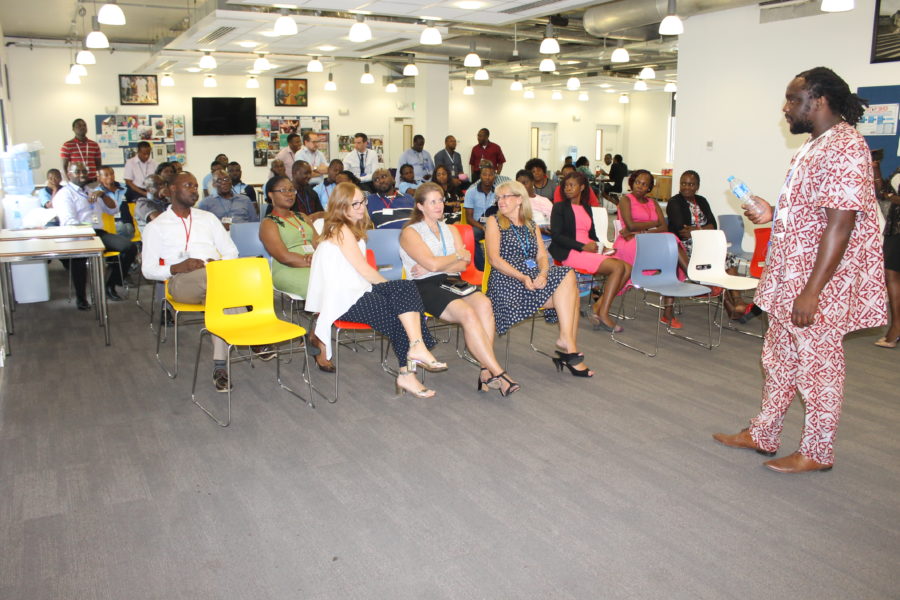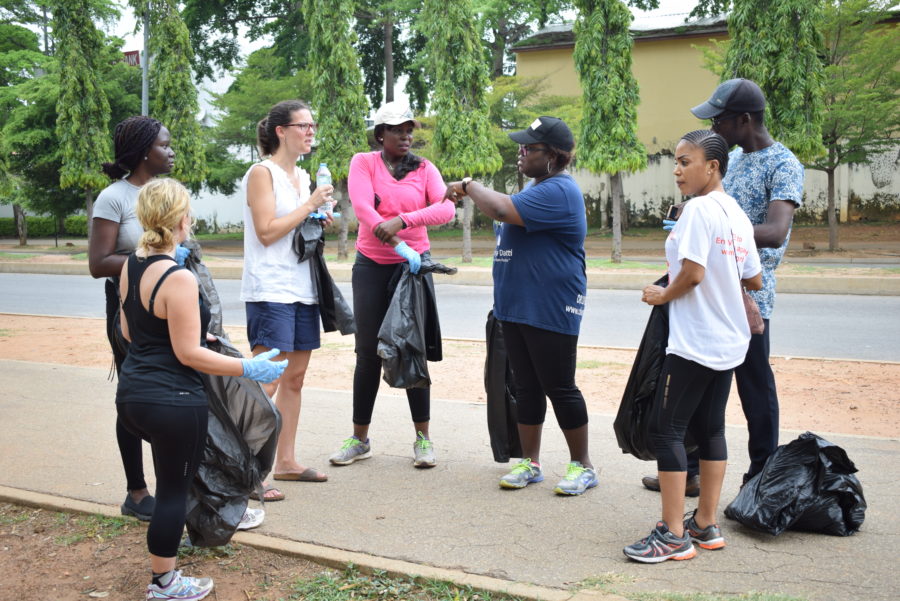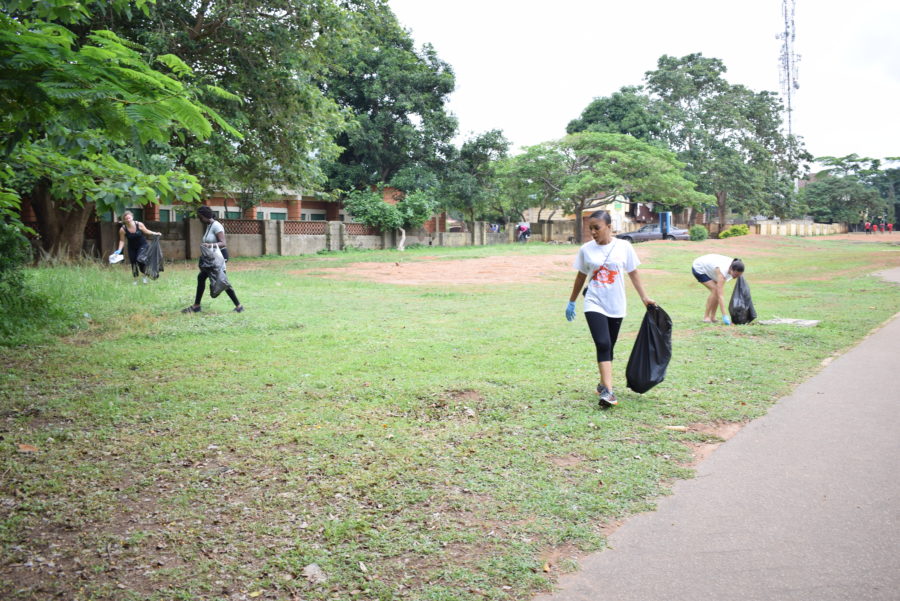28th June 2018 Abuja, Nigeria
Beating Plastic pollution – a view from Nigeria

At the British High Commission (BHC) in Abuja, we are stepping up our efforts to become greener, and to help Nigeria be greener too.
Having spent the past 16 months living in Nigeria I am almost immune to seeing mounds of burnt and discarded plastic bottles and bags littering the roadside and choking the waterways. Almost immune, but not quite – littering is wrong but on this scale it is catastrophic, and something has to change.
Abuja and the surrounding areas have some dramatic scenery; two monoliths (Aso and Zuma rock) stretch hundreds of metres into the sky and the surrounding hills offer good hiking trails. However, enjoying these assets is dampened by seeing endless people dropping empty bottles and packaging once they’ve consumed the contents. What many don’t realise is that each plastic bottle takes 400 years to decompose naturally. In Lagos, I stood on one side of the lagoon and noticed that the ‘shoreline’ I could see on the opposite side wasn’t sand, it was discarded plastic bottles. It came as no surprise to learn that it is estimated Nigeria discharges 200,000 metric tonnes of plastic waste into the Atlantic Ocean each year.
In the past, many Nigerians haven’t paid much attention to recycling and environmental issues. But more recently, attitudes are certainly changing with awareness campaigns and recycling banks being set up in Abuja and Lagos by organisations committed to making Nigeria cleaner and greener; a former colleague in Abuja co-founded one of these and remains a trustee. I have bought some fabulous upcycled furniture made from old tyres and scrap fabric which not only gives new life to otherwise scrap items, but also highlights the great entrepreneurial spirit in Nigeria – one person’s waste certainly is another’s treasure.

The tag line for the 2018 World Environment Day was “beat plastic pollution” which the Nigerian Senate used as an opportunity to discuss an increase in taxes for single use plastics. This is a great first step but many other countries, from the UK to India, are taking steps to ban all such items. Four African countries, Rwanda, Morocco, Eritrea and Kenya have implemented bans on plastic bags.
At the BHC Abuja, we too are working to reduce our environmental impact and raise wider awareness of green issues. New recycling bins have been distributed across our office and residential compounds, and we are collaborating with a local artist, who will use the plastic waste collected to create a sculpture that will be displayed in our building.

We also took the opportunity to partner with a local recycling organisation to participate in a ‘Plogging Party’. Plogging for the uninitiated, is jogging whilst picking up litter – though more of a brisk walk for someone with my fitness levels. So early on a Saturday morning, a team from the High Commission joined other likeminded volunteers to pound the streets of Abuja collecting recyclable litter. As expected, the bulk of what was collected consisted of plastic bags and bottles – in total we collected over 40kgs of rubbish to be sent to the local recycling facility. The Deputy High Commissioner rounded off the morning by opening a new recycling bank facility at a local café, a much needed facility making it easy for individuals to recycle.
These are our first steps, but our new greening committee will in the coming months be developing new ideas for how we can further reduce our environmental impact and champion green issues in Nigeria. If we can all make small changes to reduce our impact, it will soon add up to make a real difference – this really is a cause worth going the extra mile for.

Lovely Article.
We can replace plastic bags with Paper bags which are easy to recycle and doesn’t cause harm to the environment.
Very inspiring words and actions X